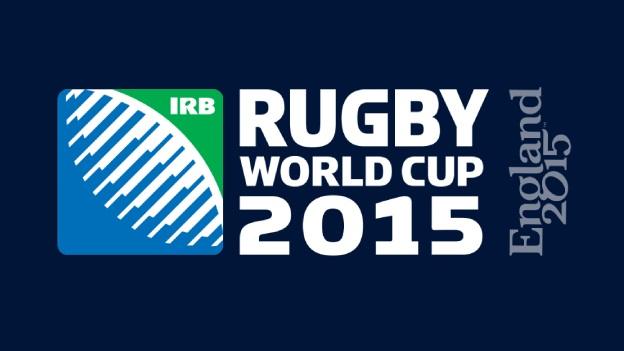Rugby World Cup: New Zealand's beautiful, ugly win v South Africa
- Published
- comments
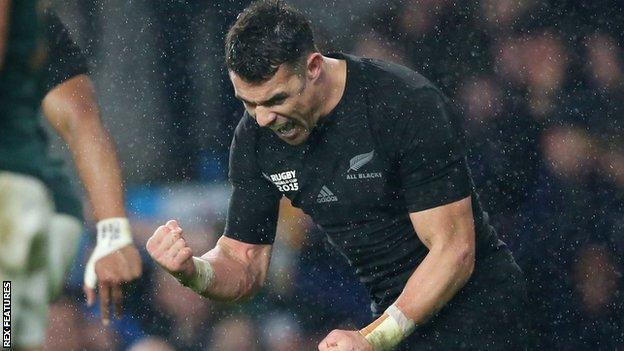
All Blacks fly-half Dan Carter will play in his first World Cup final after being injured in 2011
Rugby World Cup, 18 September-31 October |
|---|
Coverage: Live on BBC Radio 5 live or 5 live sports extra, plus live text commentary on the BBC Sport website. |
After the romancing, dancing and swooning, came the street-fighting, broken bones and broken hearts.
New Zealand's 20-18 slog past a shattered South Africa was nothing like the sweet skipping and stepping which dismantled France the week before. It was sporting attrition, one heavyweight throwing body-shots and jabs, the other absorbing them with a grunt and a shuffle and then rolling off the ropes to land a nose-breaker of their own, the rain smashing down, the red mist rising.
The All Blacks couldn't have cared less. That's the thing about winning ugly: it's still winning. And, when you look a little closer, you find a strange beauty of its own in there as well.
In a first half where the champions dominated possession and territory, the Springboks bent but would not break. They tackled everything that moved and lots of things that didn't. They muscled in at the breakdown and cashed in from Handre Pollard's boot when their occasional chances came.
A five-point deficit at the break, nine penalties conceded, a key man in the sin-bin. All other teams would have worried at that point. Most would have felt a little shiver of panic: we're not going to mess this up, are we? What happens if this stays the same?
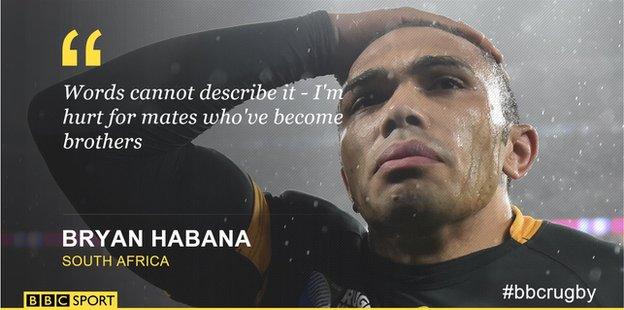
This All Blacks collective is not most teams. When you have lost just three games in four years, panic is not your first fall-back option.
So it was once again. Out they came, into the torrential rain and cold of a proper autumn night, into a South African wall of noise and violence, and went at the problem with the poise of men who have lived through worse and survived it most times.
Into the Springbok half. Eating up the minutes, holding onto the ball. Deeper into enemy territory, Dan Carter back for the drop-goal, back to within two points.
Back to full strength. Nothing extravagant, no need to gamble, just the slow exertion of inexorable pressure and the sudden acceleration into the subsequent spaces for a try that took them clear.
Little things done well. Forwards hanging on to a slippery ball under heavy green-shirted artillery. Ma'a Nonu's run sucking in one defender and drawing another to set Beauden Barrett into the corner. Carter curling the conversion through the downpour and over the posts from an angle that offered him almost nothing.
In that 20-minute period from 40 minutes to 60 the game was wrestled away. A five-point deficit turned into a five-point lead, a man down to a man up after Springbok winger Bryan Habana was sin-binned himself for cracking as the tension took its toll.
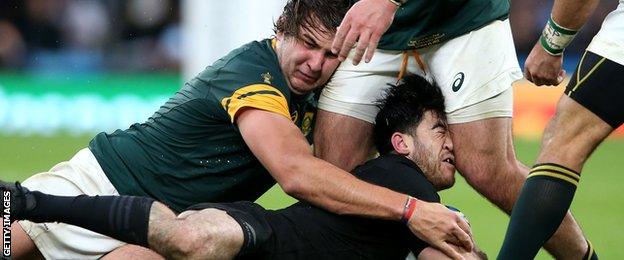
New Zealand's Nehe Milner-Skudder made more metres than any other player in the game with 92
Still the composure in the crescendo, still the right decisions made with the noise deafening all others in the stadium and the anxiety of the occasion ramping up as the Springboks clawed their way back to within two points.
It was there when Carter chased back half the length of the pitch to snuff out the sparks created by Damian De Allende's incendiary kick deep into the Kiwi 22, never appearing to hurry even with JP Pietersen bearing down on the ball, not diving on it in desperation or hacking it straight into the stands but clipping it away on the bounce as if the pitch were dry and the stadium empty.
It was there off the subsequent Springbok line-out, Carter's forwards choosing not to compete for the ball but punching to their opponents' guts with a perfectly-timed drive to disrupt the resulting maul and dissipate all its momentum. And it was there in the final 10 minutes, the lead still so slender, never losing possession, never ceding territory, never giving a sniff.
South Africa found it difficult afterwards. To get so close (only one semi-final in World Cup history has been a tighter affair, Wales's 9-8 heart-breaker to France four years ago) and with a team featuring so many old warriors in their last campaign takes its own toll.
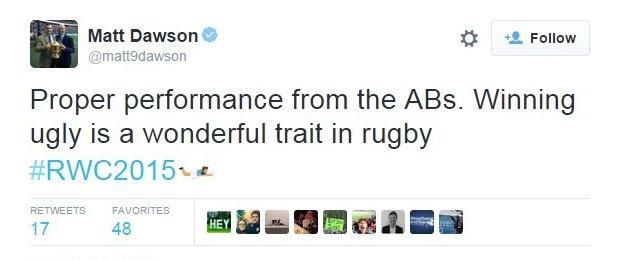
Former England scrum-half Matt Dawson
Inspirational scrum-half and captain Fourie du Preez was left with a cheekbone that looked like a melon. Habana, in his third World Cup and Du Preez's team-mate when the Springboks were crowned world champions in Paris eight years ago, was inconsolable. "Words cannot describe it," he said. "I'm hurt for mates who've become brothers."
"I've seen this movie before and it's bloody horrible," grimaced another scarred survivor of those glory days, Schalk Burger.
Their coach Heyneke Meyer, a man who was apologising to his nation after the defeat by Japan in their opening match of this tournament, was left lamenting the way their final match ended. "We had a chance and we missed it," he said afterwards. "We should have been in the final."
Maybe he had a point. South Africa had not lost to the All Blacks in 21 Tests when leading or level at half-time.
Maybe not. The All Blacks beat 19 defenders, his side three. The All Blacks made 398 metres with ball in hand, his men 146.
South Africa's 116 tackles told their tale of sometimes heroic defence. They also reveal another narrative: a side with backs to the wall, a side whose immense earlier effort could not ultimately be sustained.
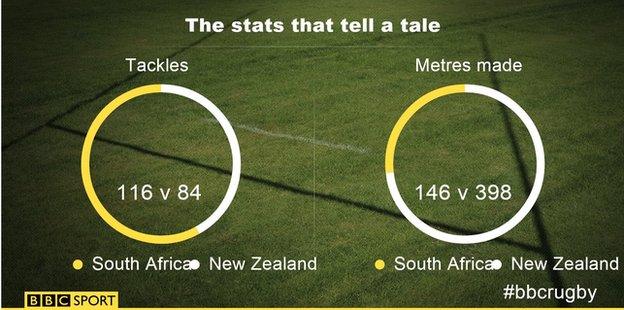
"We were pretty composed," revealed New Zealand centre Conrad Smith, about his side's response. "A lot of us were talking about what we were expecting. It would have been nice to be winning by 20 points but that doesn't always happen.
"Good teams have to come from behind sometimes, and we talked about getting up the ground quicker and playing the ball a bit sharper. We executed that really well in the second half."
Execution was about right. Beautiful can wait for another day.
More from rugby: |
|---|
For the latest rugby union news, follow @bbcrugbyunion, external on Twitter |
- Published24 October 2015
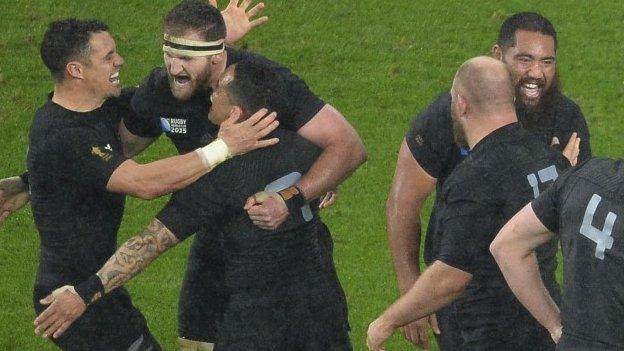
- Published24 October 2015
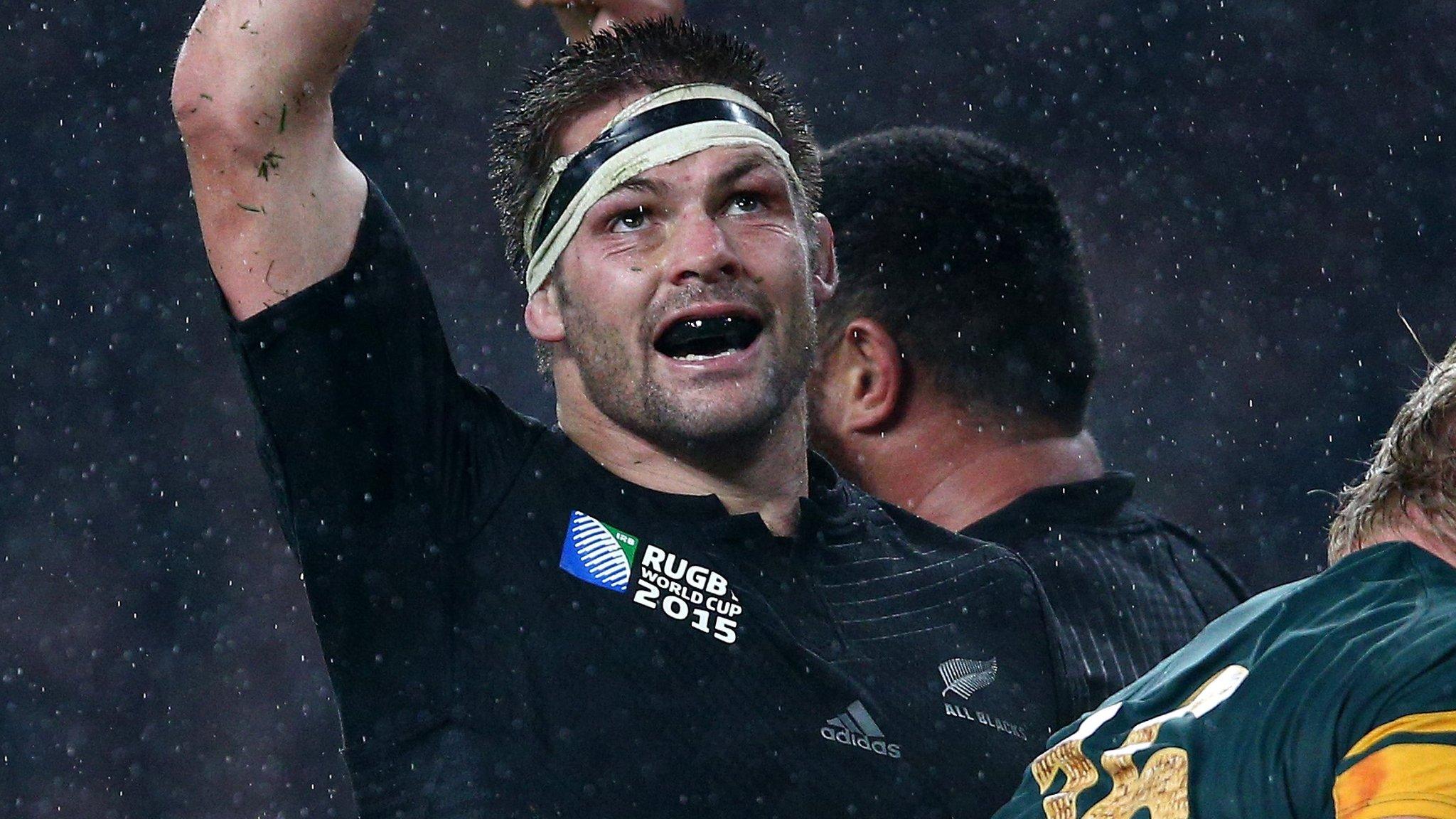
- Published24 October 2015
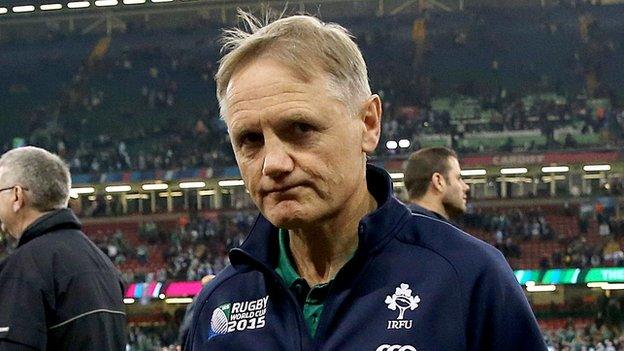
- Published20 October 2015
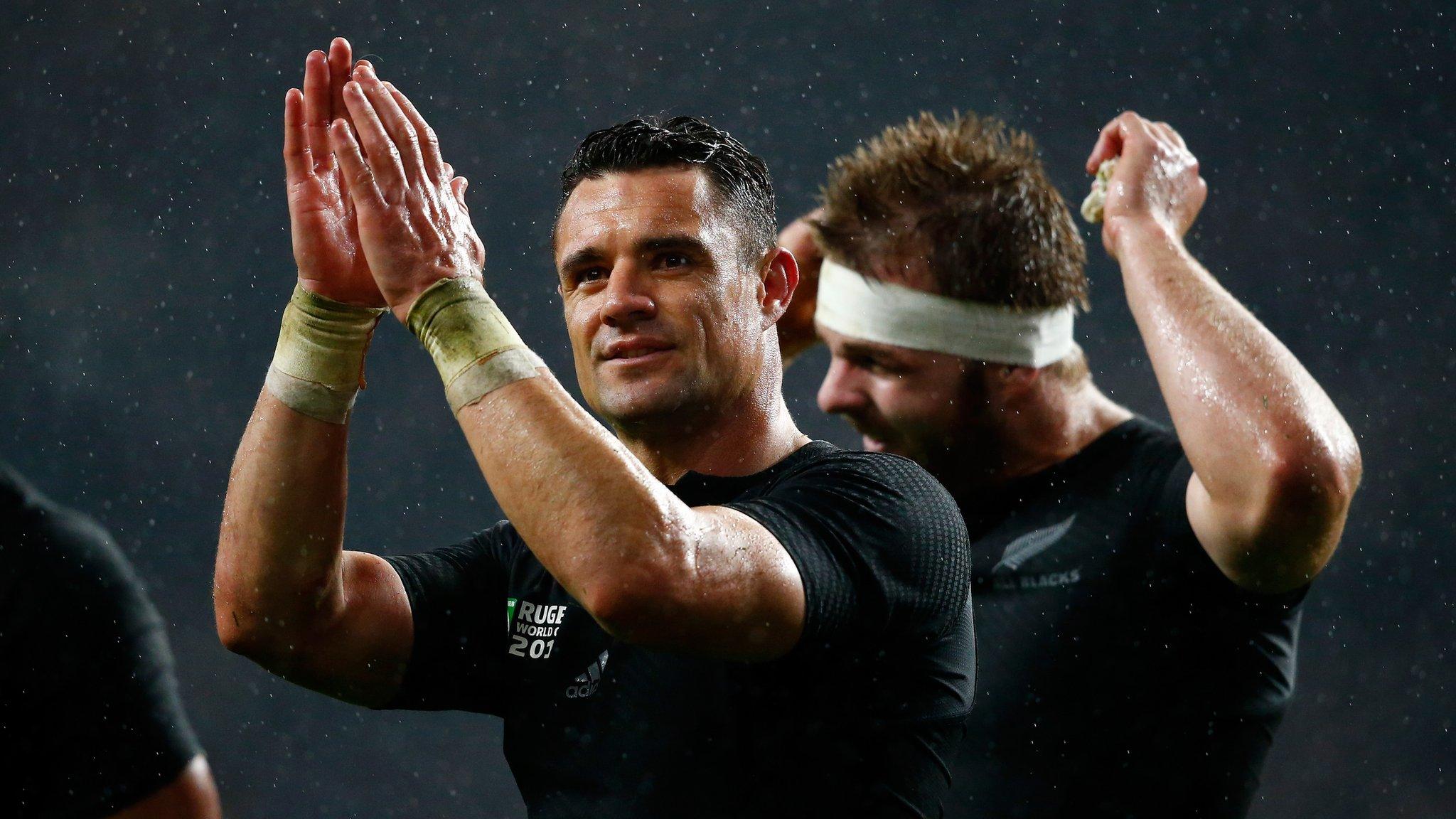
- Published18 September 2015
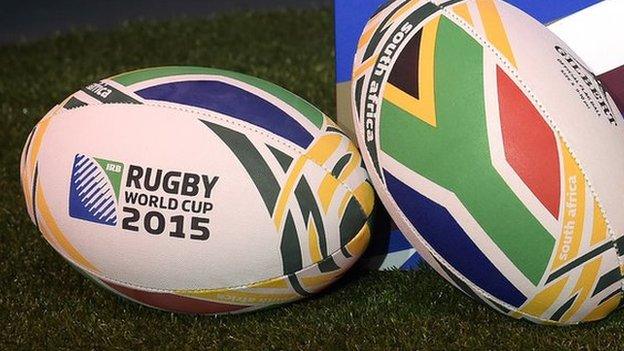
- Published3 February 2017

- Published14 September 2016

- Published15 February 2019

- Published25 September 2015
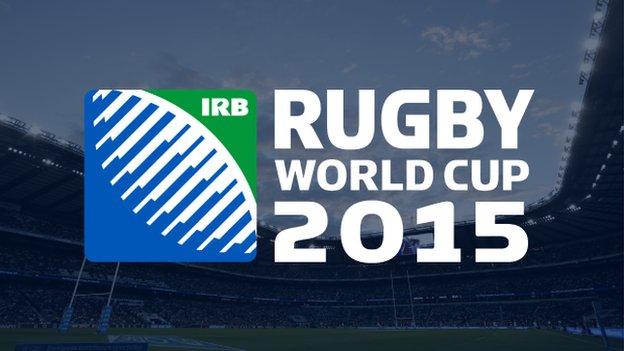
- Published8 September 2015
